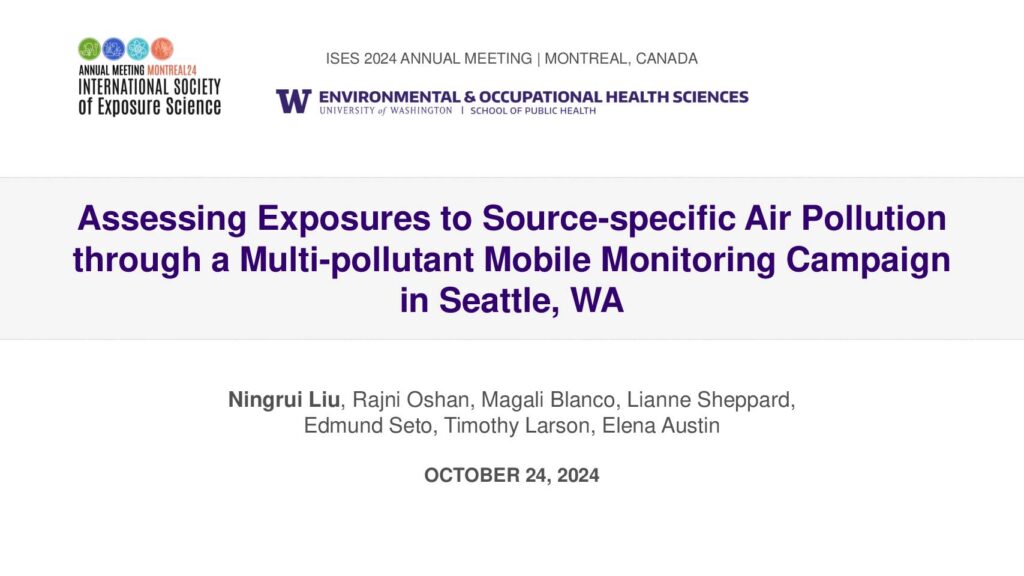-
The Issues
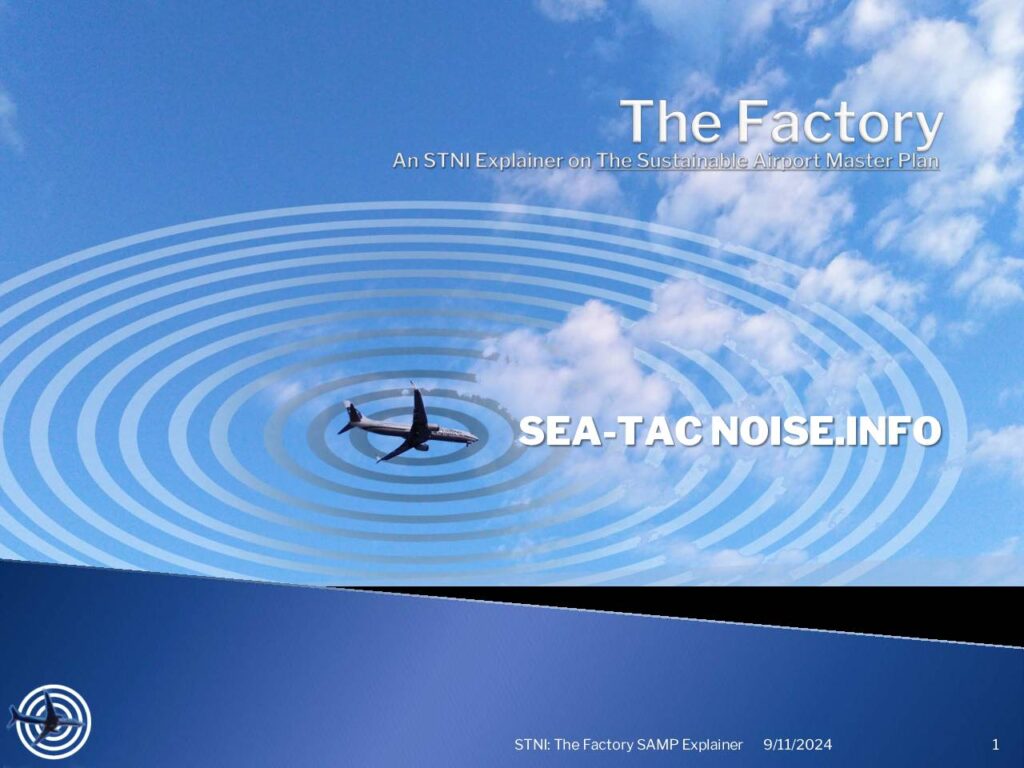 A two minute presentation on how the Sustainable Airport Master Plan (SAMP) will increase flight operations at Sea-Tac Airport as much as a new runway. Without a new runway. Provide public comment to the FAA between now and December 13,2024continue...
A two minute presentation on how the Sustainable Airport Master Plan (SAMP) will increase flight operations at Sea-Tac Airport as much as a new runway. Without a new runway. Provide public comment to the FAA between now and December 13,2024continue...
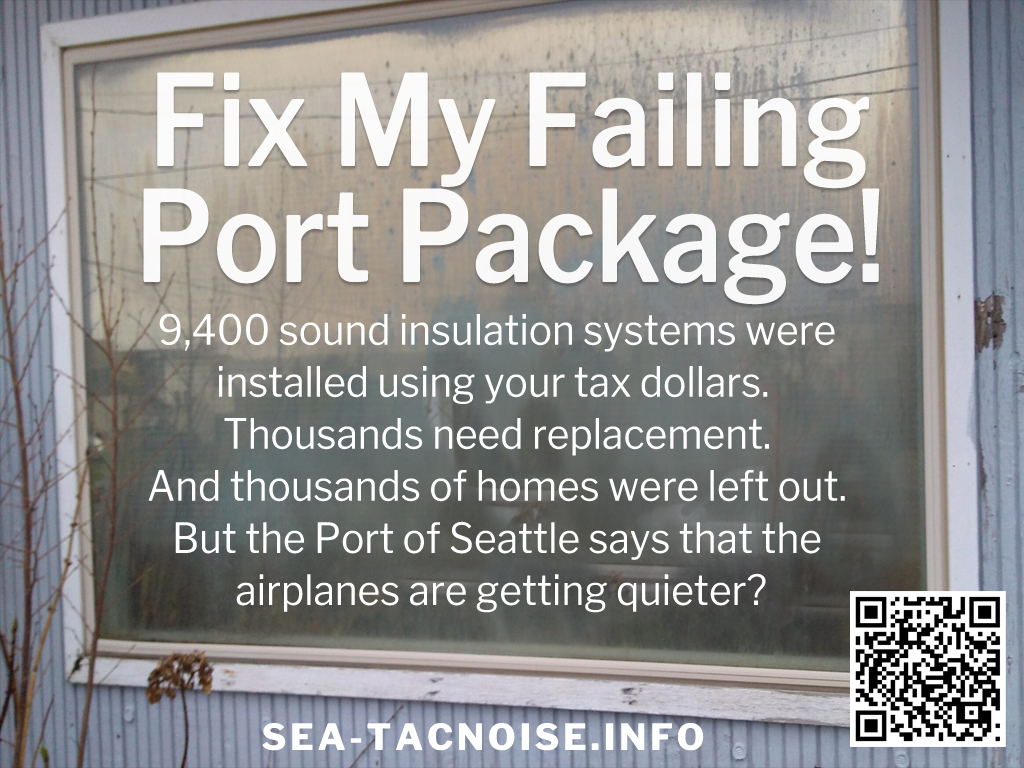 Does your home have a Port Package of noise mitigation windows and insulation? Having problems with your windows? Mold? You're not alone. Help us help you.continue...
Does your home have a Port Package of noise mitigation windows and insulation? Having problems with your windows? Mold? You're not alone. Help us help you.continue...
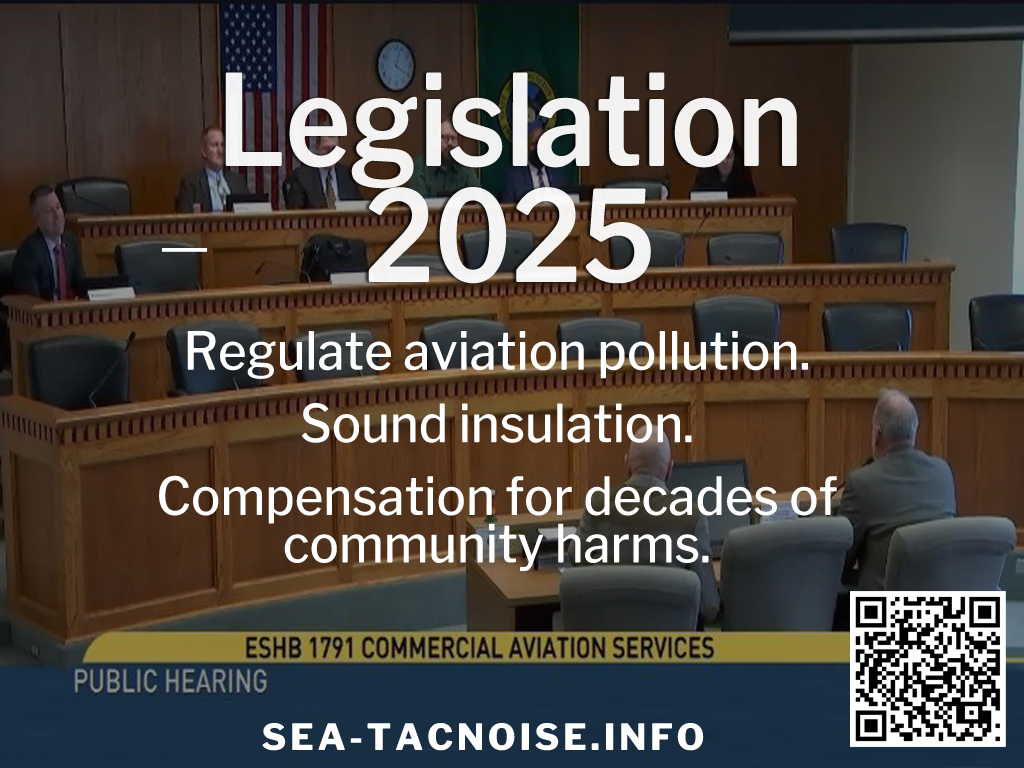 A list of the changes to City, State and Federal laws we'd like to see, along with key legislation in process at the State and Federal levels.continue...
A list of the changes to City, State and Federal laws we'd like to see, along with key legislation in process at the State and Federal levels.continue... -
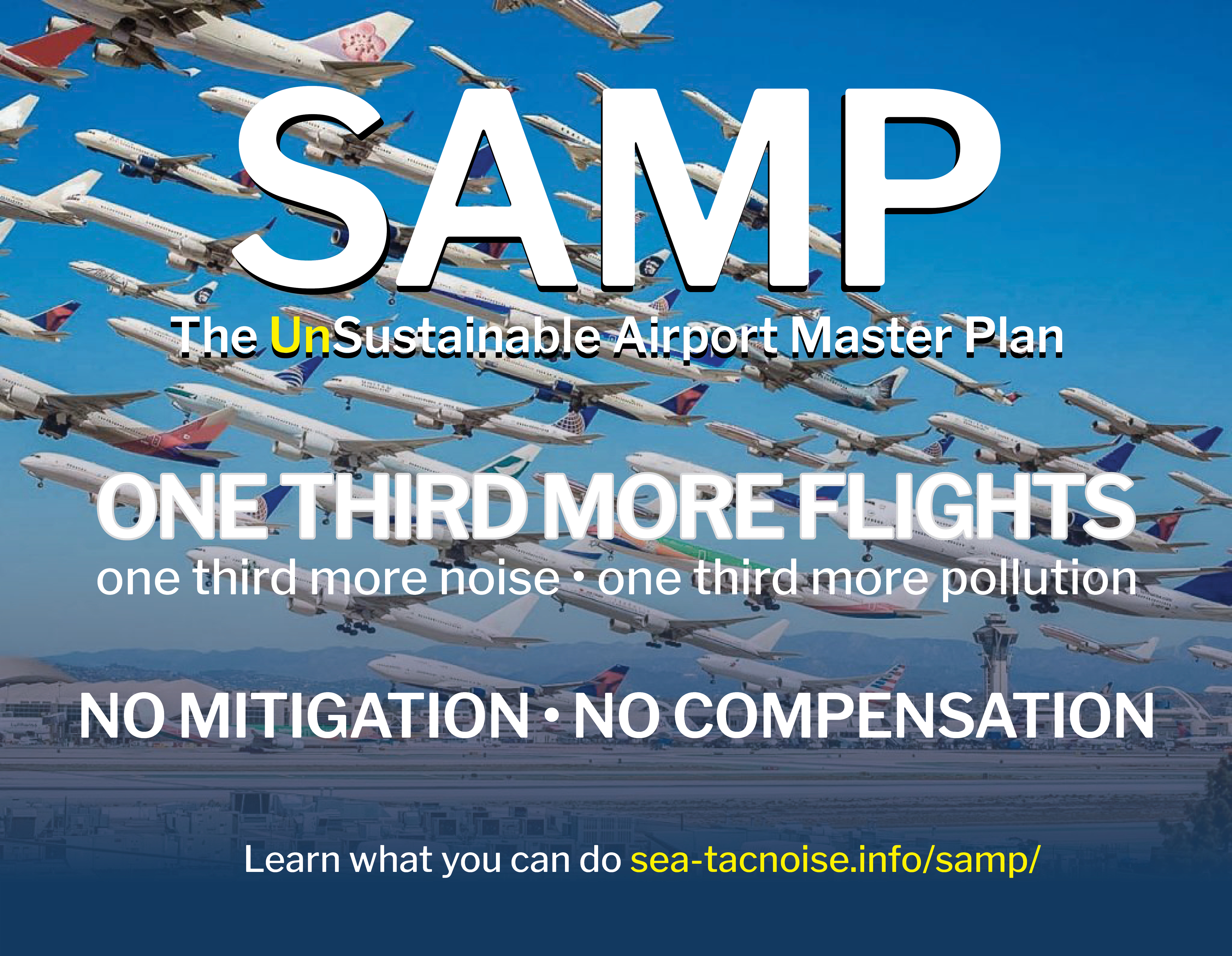 The SAMP Draft EA Public Comment Period is open now until December 13, 2024. Learn what is coming and what you can do to help reduce the noise, the pollution, and obtain the compensation we’ve deserved for decades.
The SAMP Draft EA Public Comment Period is open now until December 13, 2024. Learn what is coming and what you can do to help reduce the noise, the pollution, and obtain the compensation we’ve deserved for decades.Top Story
Status Report 2025 Q1 Part 2 (State and Local)
Where we're at. What you can do.
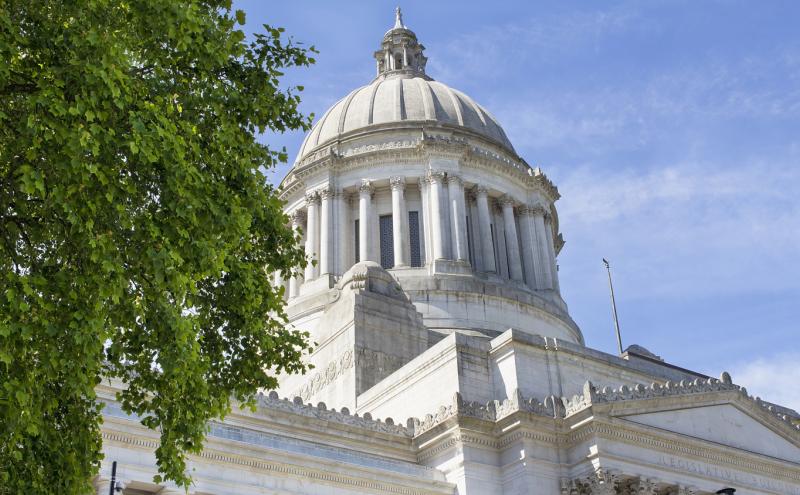 April 2, 2025
April 2, 2025We've gotten questions regarding "where does everything stand?", including the Sustainable Airport Master Plan (SAMP), state legislation, local government and how it all fits together. In Part I, we discussed the SAMP, today we'll talk about state and local affairs.
Government
State
Both major bills we supported, SB5652 and HB1303 did not move forward. Both bills should have gone further. A big problem was a lack of organization at the local level. SB5652 was dropped too late. In the case of HB1303, airport communities were told not to support it by their own cities!
We also tried hard, and failed, to obtain funding for a new socio-economic impact study. As we've written many times, in our opinion, the biggest fail in the SAMP Draft EA is Appendix K, which is supposed to document Socioeconomics, Environmental Justice, and Children’s Health. These are the 'cumulative impacts' people scream about - except that no one seems to be screaming about it. (More below.)
However, on a positive note, funding for a fixed-site air quality monitoring station in Des Moines is in the budget. Although another unit, sited at the north end of the airport, was purchased by PSCAA three years ago, it is still not operational. So, this unit may be the first such system in the region. When the second unit comes on-line we'll have monitoring for both north and south flow operations, which will go a long way towards understanding aviation pollution - especially from ultrafine particles.
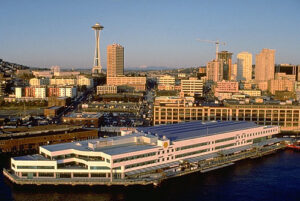 Port of Seattle
Port of SeattleThe Port's Port Package Update program, referred to as the Sound Insulation Repair, Replacement Pilot Program (SIRRPP), was called into being in January of 2024 (Order 2024-04) as a response to SB5955. However, every step to implement the program since then has been terrible. What makes this so troubling is that the Port could have simply modeled a working program in San Francisco and gotten to work. Instead, they spent the last year, and their $5M allocation on a controversial survey program.
The City of SeaTac put in their state legislative agenda a unique line
"In 2024, the Legislature established the Port District Equity Fund, which provides grants to
repair failed soundproofing for affected homes near the airport. The City encourages the
Legislature to allocate an additional $5 million."Unfortunately, SeaTac did not mention that the Port of Seattle can also put money into that account and fund Port Package Updates at any time. The Port failed to do that this year though they are in far better financial shape than the State of Washington
Two Port Commission seats are up for election.
County
King County International Airport is undergoing a master plan update similar to the SAMP. The King County Council controls that airport. They do not control Sea-Tac, but their policies can have influence. More than that, King County provides public health services for the region, overseen by the King County Council.
Several seats are up for election - including District #5 - which encompasses Sea-Tac Airport and the adjacent cities of Burien, Des Moines, Normandy Park and SeaTac. The challenge is that District #5 also includes Kent and Renton, which tend to see Sea-Tac in a much more positive light.
Local
Thinking outside the SAMP
As we mentioned, the City of SeaTac presented a state airport legislative agenda that nodded to SB5652, but otherwise mirrored the Port of Seattle's priorities.
Despite having the only airport committee in service since 2018, the Burien City Council presented no true airport legislative agenda. Burien has appointed new members to the BAC, including one longstanding StART member.
Des Moines presented a robust airport legislative agenda, but that was almost entirely the advocacy of a single councilmember. Des Moines is waiting for its new airport advisory committee to form - but has blocked that councilmember (or any elected) from participation. However, they too will invite StART members to join. However, most notably, the Des Moines City Council, again, failed to restore its sound code.
Four seats are up in all three cities.
What can we do, now?
There is no one-size fits all solution
One of the biggest challenges is educating people that we can do a lot. Each community needs different things. And each community can accomplish very different things. By limiting our asks to items that affect 'everyone' leads to getting nothing done.
Perhaps the prime example of this, are the airport's water processing systems. They cost over $110,000,000 and saved the entire eco-system after decades where the airport simply let runoff go directly into local streams! The solution came out of the Third Runway battles -- primarily because of concerns by people living nearest these creeks. That 'hyper-local' interest yielded permanent benefits for everyone near the airport.
Socio-economic Analysis
We mentioned the absolute need for a detailed socio-economic study of the entire region to counter Appendix K of the SAMP Draft EA.
- But cities do not have to wait! Cities like Des Moines and Burien, have Port-owned properties bought with FAA funding. These cities can do a very simple cost/benefit calculation. What actual economic benefits have these properties provided for their communities; not the Port of Seattle or King County writ large?
- What costs are you not fully capturing?
- What about possible missed revenue opportunities? In Des Moines, the city had not added a warehouse tax, which most other cities involved in airport logistics already had! By not taking the Port's arguments of 'economic benefit' at face value, by taking a fresh look at the numbers, Des Moines recently added over $700,000 a year in structural revenue!
We covered the case of the Des Moines Business Park here. But every community under the flight path has been sold a similar argument: that the Port of Seattle is making everyone's lives - and your neighborhood - better. Demand that your city gather the data to determine the objective truth. Economics. Local employment. Tree canopy. Public health. Property values (and the wear and tear from all the emissions!) Education. Crime. Anecdotes do not work. Demand community data.
Negotiations
More is possible right now
Many of our most pressing issues do not require legislation! Never did. They have always been completely at the discretion of the Port of Seattle Commission. The challenge has not been making them happen. The challenge has been getting these negotiations started. The Port has certainly never advertised this. Why should they? And frankly, local and state electeds have shown no interest in pushing this. The narrative has been that you either work with the Port or you're 'at war'. This is silly. We should only look at the City of Seattle, which is constantly partnering and pushing back on a variety of issues.
- Cities subject to property buyouts should be demanding compensation from the Port of Seattle equal to lost revenue - particularly lost property tax. That can be addressed by a reform to State Leasehold Excise Tax law. That revenue alone could add hundreds of thousands of dollars more per year in structural revenue.
- All cities with measurable socio-economic airport impacts should immediately begin negotiating for their own Inter-Local Agreements. The Port can certainly afford them. (The property tax levy funds a large part of SeaTac's ILA. Since all of King County benefits from the airport, it seems only fair to allocate a similar amount to other cities experiencing similar harms.) Again, education is the key. For the past thirty years, both the Port and the City of SeaTac have done a magnificent job of convincing the rest of the area that such agreements are impossible. Which was never true.
- Land Stewardship. In 2023, the Port implemented a very good Land Stewardship Plan. But then made it applicable only to the airport property! Sound familiar? That was their same boundary area for the SAMP! It is completely within the Port Commission's authority to apply these standards to all the property they own. Doing this would immediately improve tree canopy and environmental standards throughout the area - including commercial properties which have lots hundreds of trees.
- Fund Port Package Updates. Same story. The Port developed a Port Package Update program - and then asked the State to fund it! Every city with Port Packages should be demanding that the Port add $5,000,000 of its own money to the fund they helped create with SB5955!
The cure is an election
November may be an 'off-year election' but as we noted, a large portion of local seats are up for grabs. Unfortunately, we rarely demand answers from electeds on airport issues. Candidates can easily say "I hate the noise and pollution!" That tells you nothing. Frankly, we can count the number of councilmembers that have demonstrated any understanding of the issues on the fingers of one hand. Demand to know their position on all these specific items,
Call to Action
Much more is possible. But we all have to start asking for it! Apart from the SAMP or any State legislation, we need to demand the Port do what it already can do. And we need to demand that our local electeds be asking for the same things. Why should the Port listen to us (or any residents) if your local electeds aren't asking for the same things? It is up to you to make it clear that a second airport, electric planes, sustainable aviation fuel and Port programs like tree plantings are virtue signaling. They are tactics to distract us from obtaining the relief we can already have now.
- Write and attend your city council
- Burien: council@burienwa.gov
- Des Moines: citycouncil@desmoineswa.gov
- Federal Way: council@cityoffederalway.com
- Normandy Park: council.members@normandyparkwa.gov
- SeaTac: citycouncil@seatacwa.gov
- Attend the Highline Forum: a quarterly meeting of electeds from the Port of Seattle. six airport adjacent cities, Highline Schools and state and congressional assistants. You can attend virtually and they accept public comment. This is probably the single most effective way to get these shared messages out to all regional governments. However, be warned: they operate in something of an information bubble - provided by the Port. They may hear complaints from residents but almost never new information to broaden their perspectives.
- Attend StART: the Sea-Tac Advisory Round Table is a quarterly meeting of community members and administrators (not electeds) from these same cities. The Port runs these meetings, however commissioners do not attend and generally do not watch the meetings. You can attend virtually and they do take public comment. Frankly StART members operate in the same information bubble as people at the Highline Forum. Since they have such a steady diet of Port-propaganda you may be the first person to suggest that their may be other possibilities. Don't give up.
Wherever you go, make it clear that you want the Port to be spending its own money to and doing more of what it can already do. And make sure that your electeds are insisting on exactly the same things!
- Start following local races. (Please let us know about candidates in your city!)
- Ask everyone, Port Commissioners, local electeds, candidates, pointed, specific questions such as:
- Has your city conducted a detailed socio-economic study of airport impacts?
- Cities subject to property buyouts should be demanding compensation from the Port of Seattle equal to
- What are you doing to begin negotiating for their own Inter-Local Agreements.
- What are you doing to make certain the Port's Land Stewardship Plan standards will be applied to all Port property. How do those standards compare with your city's environmental standards? If they aren't, improve them! If they're better, let us know!
- Why aren't you insisting that the Port fund their own Port Package Update program?
- If you live in Des Moines, Why hasn't your city restored the Sound Code it abandoned in 2012?
The more specific your questions are, the less chance officials have to wiggle out of committing to real action - no more virtue signaling.
- Share the responses you receive. We all need to know what your electeds and candidates are really thinking. Asking these questions, making sure we know where all our local governments really stand, is the way to get the Port to do the things it always could do: reducing harms where possible, and obtaining progressive compensation for those it cannot.
Recent Stories
- Status Report Q1 2025 Part 1 (SAMP)
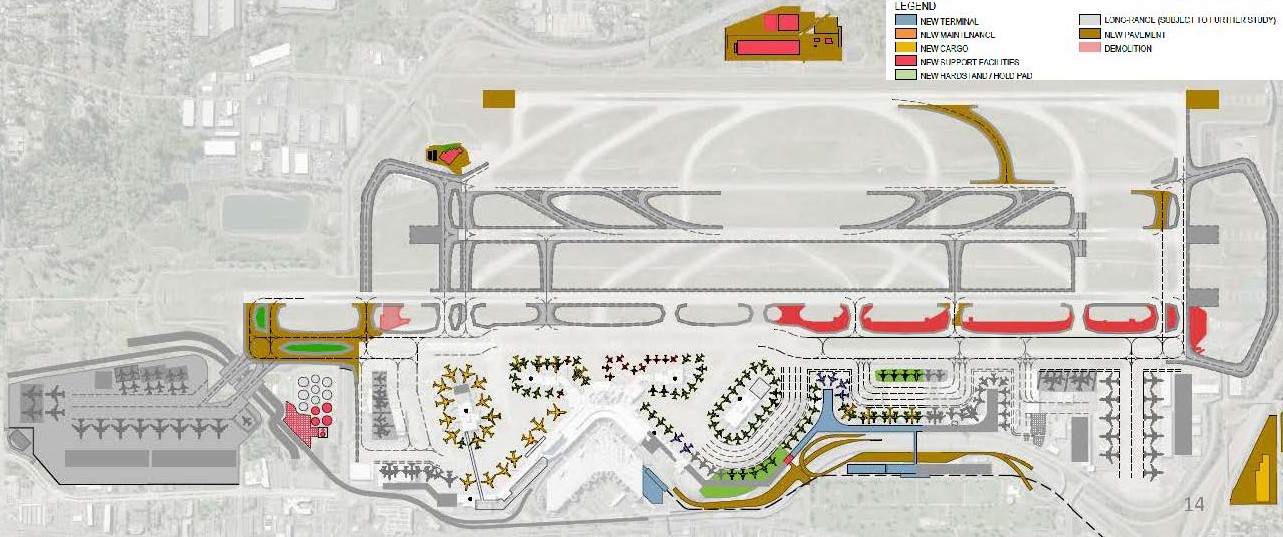 Where we’re at. What you can do. We’ve gotten questions regarding where the Sustainable Airport Master Plan (SAMP) is at, state legislation, and possible next steps. We’ll start with the SAMP today, where we don’t know a lot and go into the state and local affairs next time. The SAMP NEPA Draft EA The NEPA
Where we’re at. What you can do. We’ve gotten questions regarding where the Sustainable Airport Master Plan (SAMP) is at, state legislation, and possible next steps. We’ll start with the SAMP today, where we don’t know a lot and go into the state and local affairs next time. The SAMP NEPA Draft EA The NEPA - United Airlines Boeing 737 Flight Hit By Kite On Landing At Washington National Airport
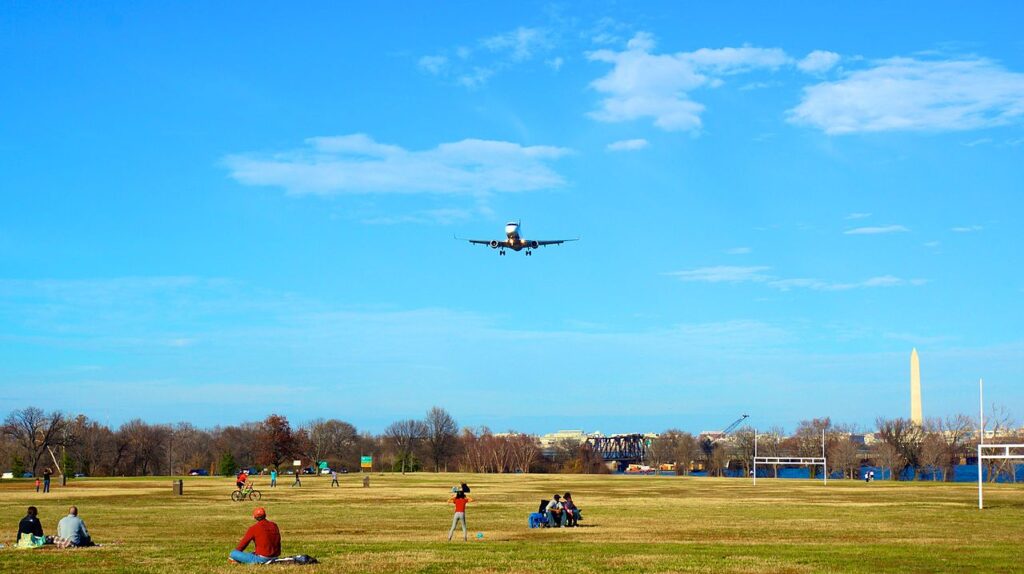 A United Airlines Boeing 737 aircraft was reportedly hit by a kite upon landing at Ronald Reagan Washington National Airport (DCA). The aircraft landed without further incident, and no injuries were reported. The incident details On March 29, 2025, the airline’s Boeing 737-700 aircraft, registered as N24736, operated flight UA 654 from George Bush Intercontinental Airport (IAH)
A United Airlines Boeing 737 aircraft was reportedly hit by a kite upon landing at Ronald Reagan Washington National Airport (DCA). The aircraft landed without further incident, and no injuries were reported. The incident details On March 29, 2025, the airline’s Boeing 737-700 aircraft, registered as N24736, operated flight UA 654 from George Bush Intercontinental Airport (IAH) - Why Airline Pilots Feel Pushed to Hide Their Mental Illness
 Is the F.A.A. really ensuring safety by disqualifying pilots who receive a diagnosis or treatment? Troy Merritt, a pilot, sought professional help for his mental-health challenges and then had to go through an arduous process to regain his certification to fly… Troy Merritt, a pilot for a major U.S. airline, returned from his 30th birthday
Is the F.A.A. really ensuring safety by disqualifying pilots who receive a diagnosis or treatment? Troy Merritt, a pilot, sought professional help for his mental-health challenges and then had to go through an arduous process to regain his certification to fly… Troy Merritt, a pilot for a major U.S. airline, returned from his 30th birthday - Passenger flight and Air Force jet diverted from potential collision at DC airport
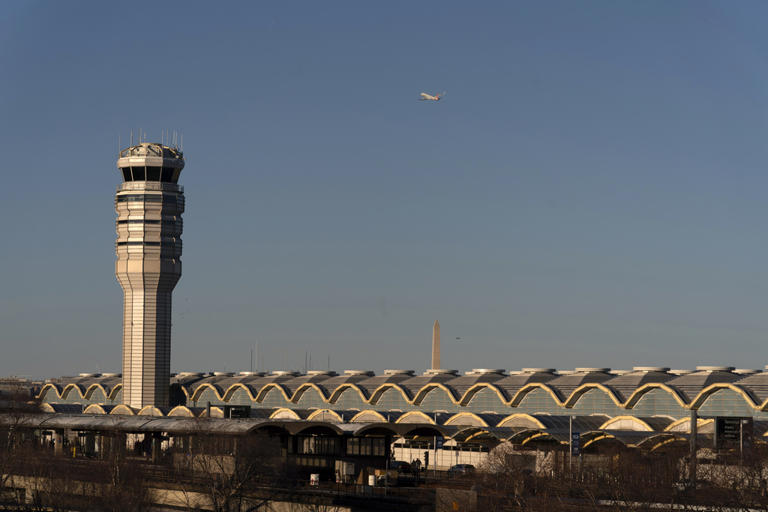 A U.S. passenger flight preparing to leave the nation’s capital and an incoming military jet received instructions to divert and prevent a possible collision, officials said. Delta Air Lines Flight 2983 was cleared for takeoff at Ronald Reagan Washington National Airport on Friday around 3:15 p.m., the same time four U.S. Air Force T-38 Talon
A U.S. passenger flight preparing to leave the nation’s capital and an incoming military jet received instructions to divert and prevent a possible collision, officials said. Delta Air Lines Flight 2983 was cleared for takeoff at Ronald Reagan Washington National Airport on Friday around 3:15 p.m., the same time four U.S. Air Force T-38 Talon - Des Moines City Council punts on restoring sound code
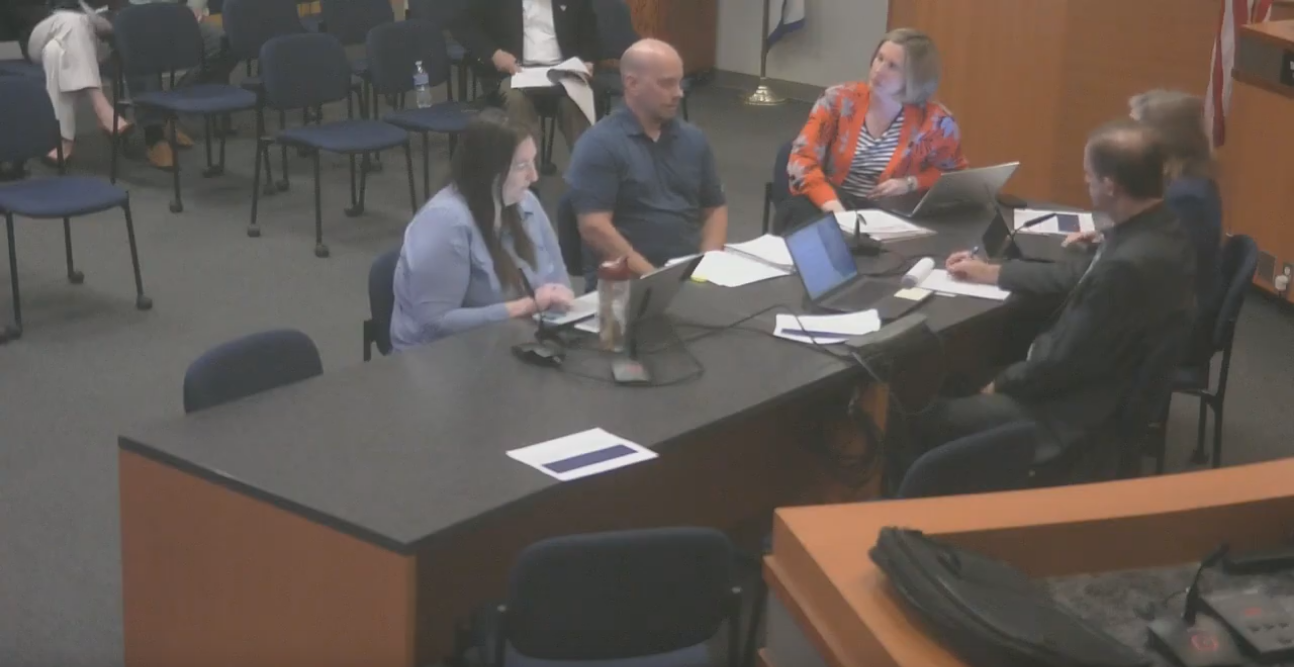 City describes aircraft noise as a nuisance Read machine-generated transcript At its March 27, 2025 Economic Development Committee meeting, Des Moines councilmembers declined to recommend that the City hire a sound consultant—despite the City’s recommendation. The meeting’s “Sound Code” agenda item came after a year of dithering about restoring the City’s long-abandoned sound mitigation ordinance,
City describes aircraft noise as a nuisance Read machine-generated transcript At its March 27, 2025 Economic Development Committee meeting, Des Moines councilmembers declined to recommend that the City hire a sound consultant—despite the City’s recommendation. The meeting’s “Sound Code” agenda item came after a year of dithering about restoring the City’s long-abandoned sound mitigation ordinance,
From The Web
United Airlines Boeing 737 Flight Hit By Kite On Landing At Washington National Airport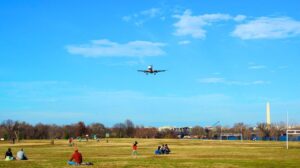 A United Airlines Boeing 737 aircraft was reportedly hit by a kite upon landing at Ronald Reagan Washington National Airport (DCA). The aircraft landed without further incident, and no injuries were reported. The incident details On March 29, 2025, the airline’s Boeing 737-700 aircraft, registered as N24736, operated flight UA 654 from George Bush Intercontinental Airport (IAH) [...]
A United Airlines Boeing 737 aircraft was reportedly hit by a kite upon landing at Ronald Reagan Washington National Airport (DCA). The aircraft landed without further incident, and no injuries were reported. The incident details On March 29, 2025, the airline’s Boeing 737-700 aircraft, registered as N24736, operated flight UA 654 from George Bush Intercontinental Airport (IAH) [...]
From The Library
Under The Flight Path
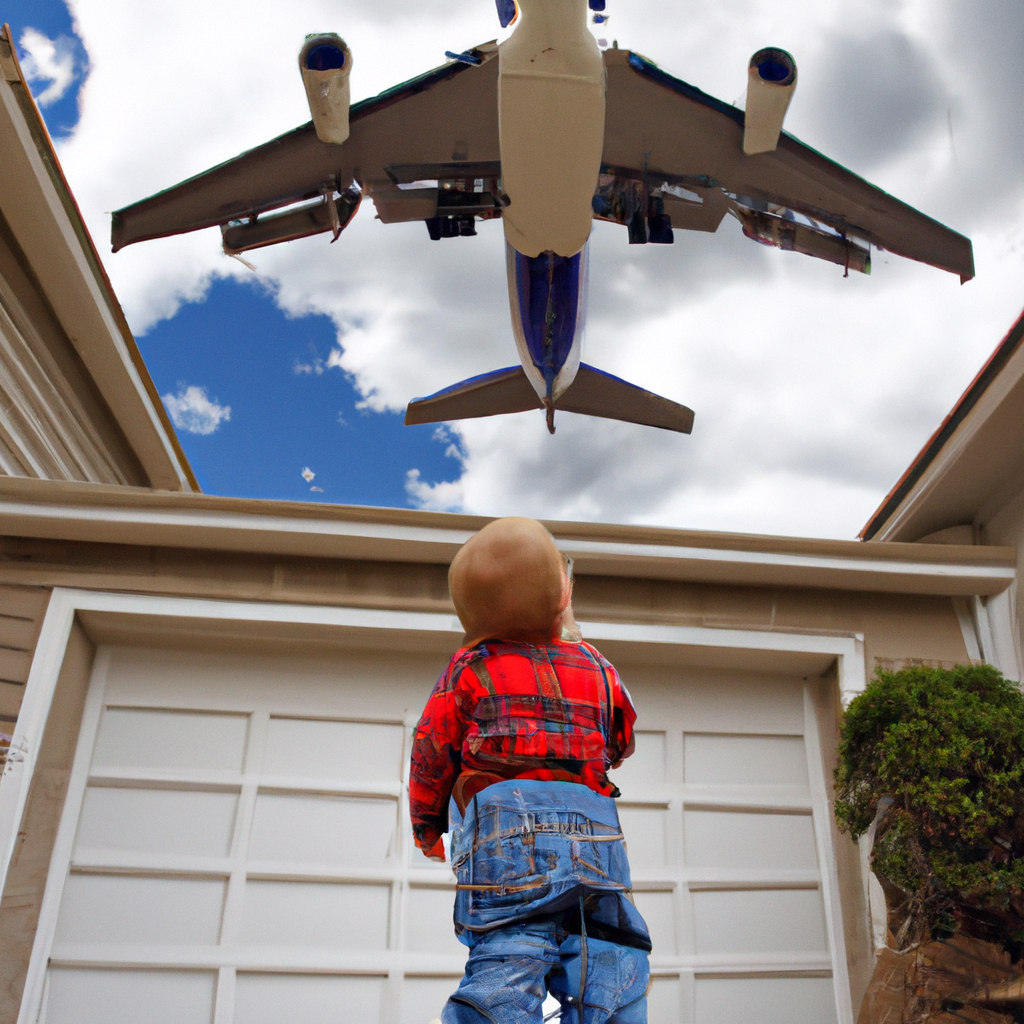 Under The Flight Path: A Community History of Sea-Tac Airport. Help us complete the first comprehensive documentary of any major US airport; the impacts on the cities and the people.continue...
Under The Flight Path: A Community History of Sea-Tac Airport. Help us complete the first comprehensive documentary of any major US airport; the impacts on the cities and the people.continue...
FAQs
